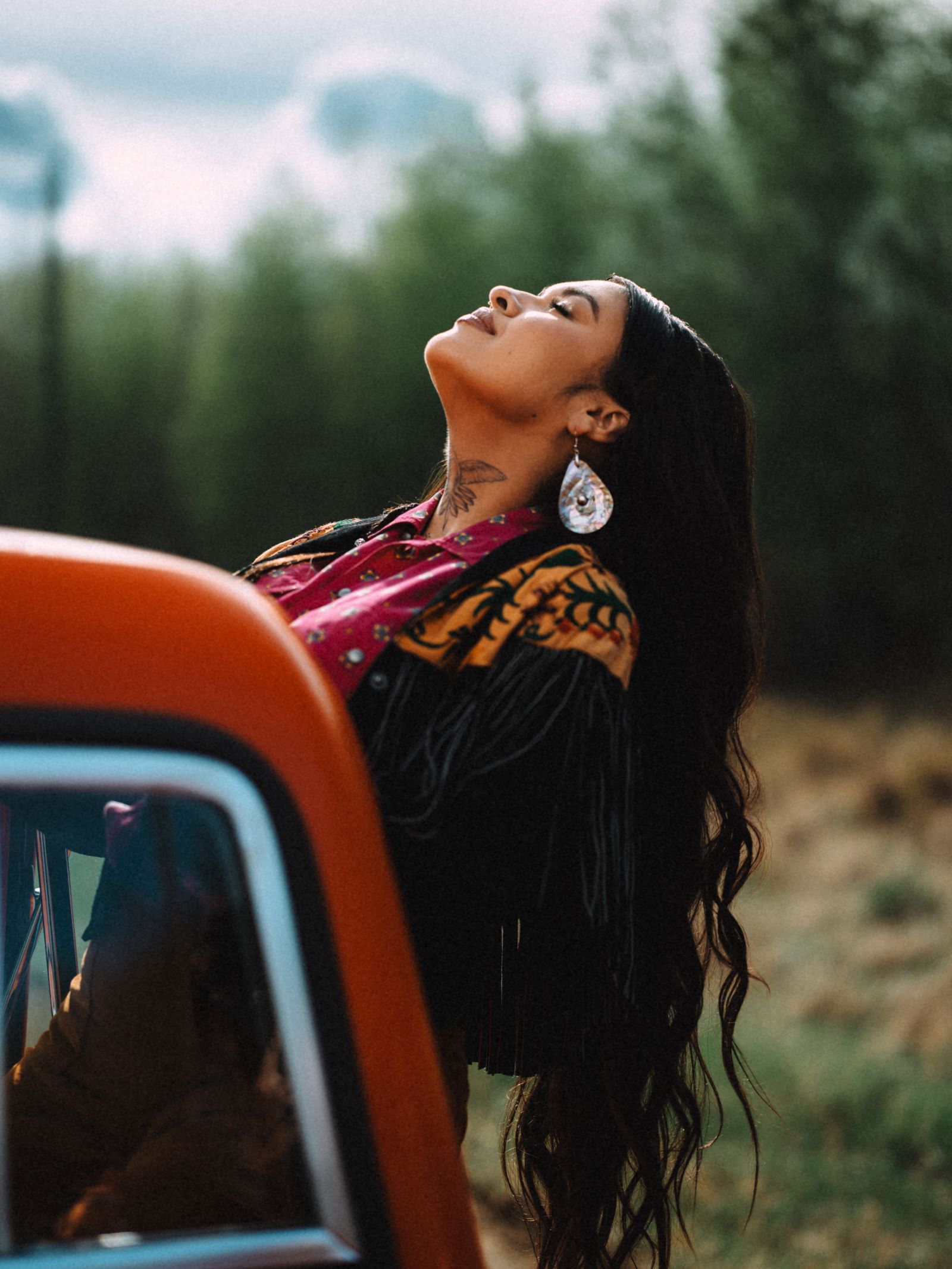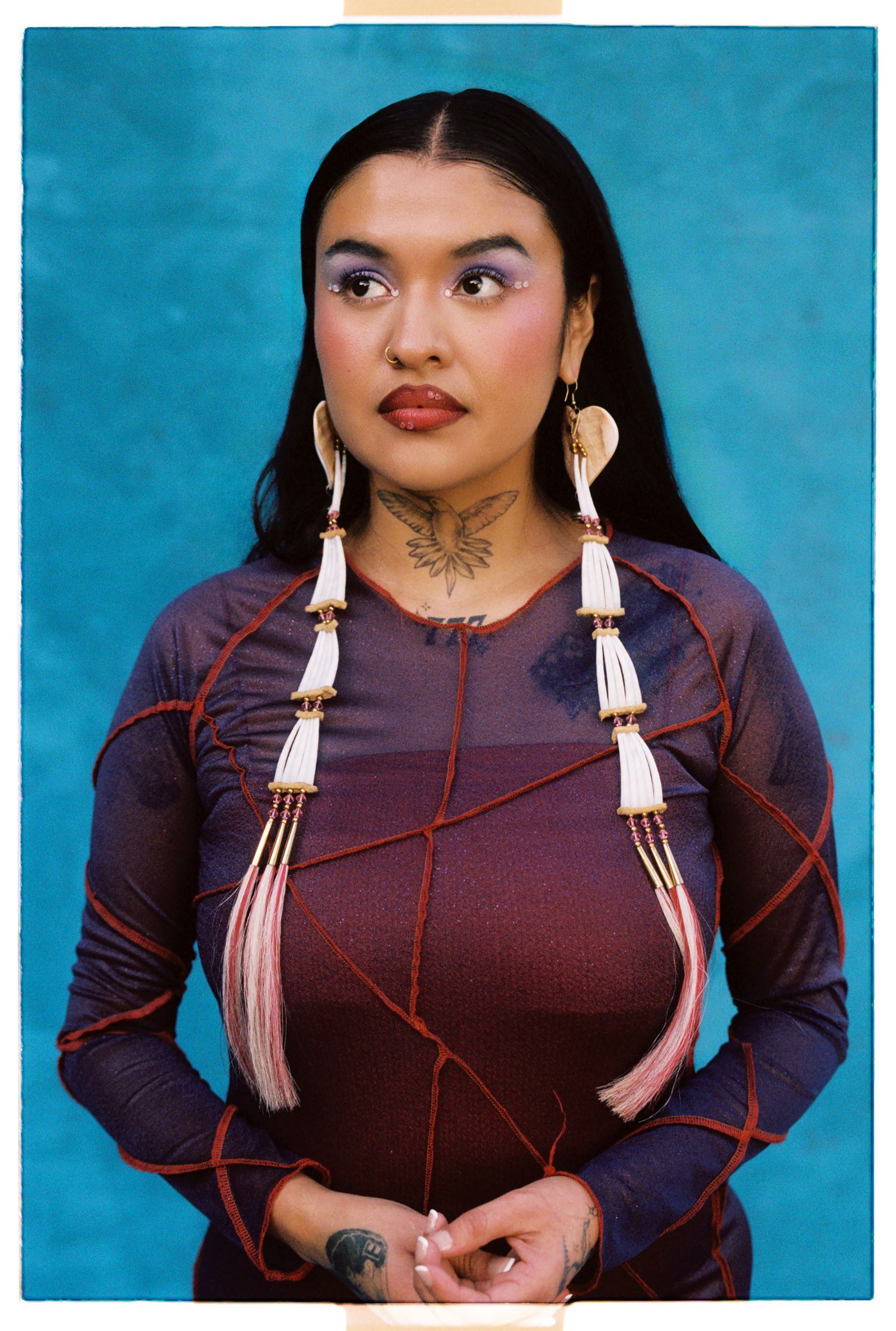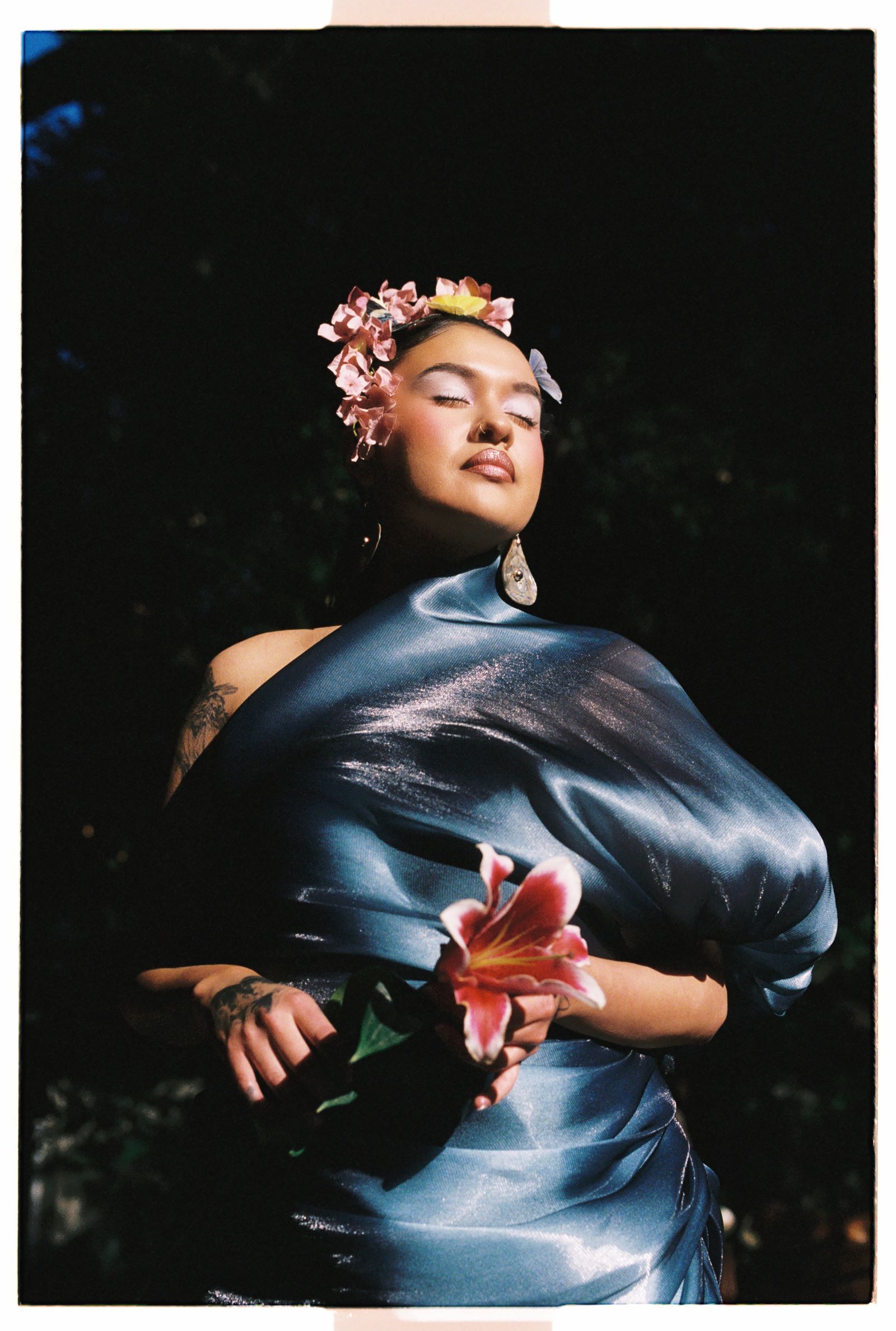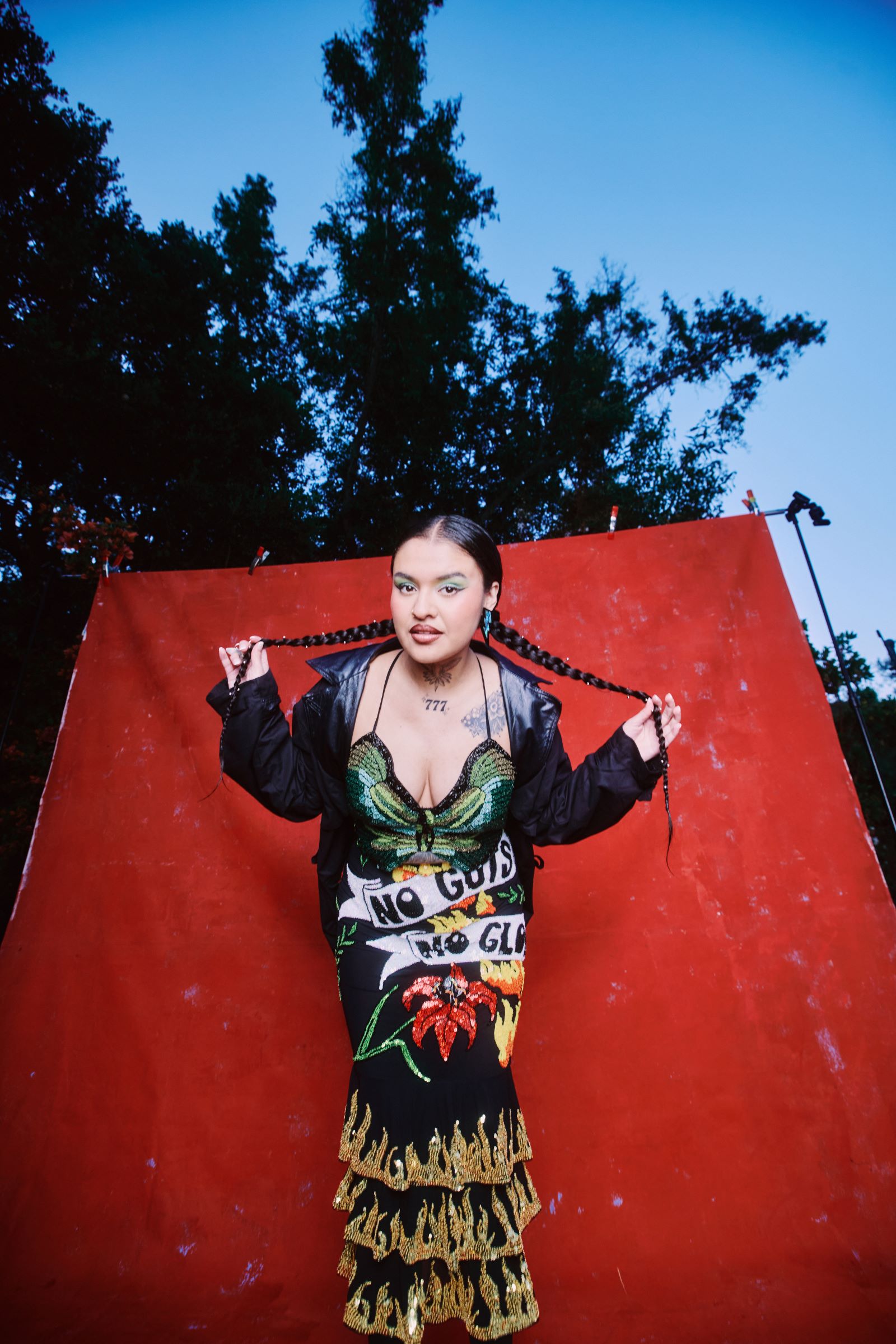Tia Wood Paves the Way for Indigenous Artists
Her career reflects a powerful coming-of-age journey, deeply rooted in her embrace of Indigeneity.

Photo by Morgan Gold
The way Tia Wood answers each question in our interview is direct, saying only what’s needed but giving every response a thoughtful weight. Perhaps it’s her journey of discovering her purpose and voice as an Indigenous woman in music that shapes this style: precise, yet filled with her distinctive presence.
It’s clear that for Wood, music runs in her DNA. “I grew up with a really musical family. It’s just something that was really inevitable to me. My dad was part of a Grammy-nominated drum group, Northern Cree. My mom was in this all-girls drum group called Fraser Valley, and my sister actually just won a Juno,” she says, smiling. What she doesn’t mention: she’s the first Indigenous woman to be signed with Sony Music Canada, following in her family’s legacy.
Hailing from the dirt roads of Saddle Lake Cree Nation in central Alberta, the 25-year-old singer-songwriter blends her Cree and Salish heritage into her music, describing her sound as “Indigenous vocals with stuff you hear on the radio.” While her parents taught her traditional Indigenous singing as a child, her unique style also draws heavily from pop influences she credits to her mom. “She would always play a lot of Etta James, and then I got introduced to Avril Lavigne,” Wood recalls. “I used to always sing behind my house because we have a lot of horses where I grew up in the rez. I remember singing all those songs—Avril Lavigne, Etta James, Amy Winehouse. We had these bales behind our house, shaped like a T, like a stage. I’d crawl on top of them and pretend I was performing for the horses and everything,” she reminisces. What began as a childhood reverie has now come full circle, with Wood recently wrapping up her 2024 Dirt Roads Tour, which took her to venues across Canada.

Photo by Ashley Osborn

Wood admits she never planned on pursuing music as a career. “I just didn’t think it was possible because of a lack of representation,” she says. However, during the height of the COVID-19 pandemic, she began experimenting with TikTok. One video, in which she duetted with Charlie Puth by layering Indigenous vocals over his music with the caption “make it Indigenous” went viral and changed everything for her. “TikTok was really taking off, especially Indigenous TikTok,” she explains. “I started singing Indigenous vocals over beats, and it was really popping off. I hadn’t planned on pursuing music as a career—I just didn’t think it was possible because of a lack of representation. But when I started seeing the response on TikTok, I thought, ‘Maybe people do want to hear this. ‘Maybe there is a space for this.’”
Her career symbolizes a powerful coming-of-age journey, deeply rooted in embracing her Indigenous identity and making her voice heard in an authentic way. Reflecting on her early struggles, Wood admits that she initially created music that didn’t resonate with her personally, aiming instead to meet others’ expectations.
___
“When I first started making this kind of music, I really struggled with being honest with myself and with what I wanted to make. In the beginning, I was writing stuff that I thought people wanted to hear because I didn’t feel like my story was worth telling. Indigenous storytelling and perspective were always brushed under the rug.”
A turning point came when she realized she wanted to preserve the culture her parents, both residential school survivors, had fought hard to protect. Accessing this cultural strength helped her feel empowered and guided her approach to music. “I started realizing that my story was worth telling and began to be more honest with my lyrics and what I wanted to talk about,” she says. “Everything I sing, even if it isn’t Indigenous music, is still Indigenous storytelling because it’s coming from my perspective.”

Photo by Ashley Osborn
There’s no stopping Tia Wood, who stands at the intersection of recent major milestones and exciting prospects ahead. She recently released her debut EP, Pretty Red Bird, featuring the hit single “Dirt Roads”—a song that offers a poignant glimpse into her life, with a music video capturing heartfelt scenes with family and friends in her hometown of Saddle Lake. Most recently, Wood reached another career milestone by performing at the 10th—and first North American—edition of the Porsche Scopes Festival, a global platform for emerging artists, in collaboration with an Indigenous throat singer.
As for what’s next, she’s looking forward to returning to the studio to record more music and opening for one of her favorite artists, Snotty Nose Rez Kids, a First Nations hip-hop duo, at their upcoming shows.
What advice she would give her younger self when she first started making music? She responds without hesitation, as if she’s always known the answer: “Believe in yourself and know that you’re valid and that what you have to say is valid. That’s what I would say to myself.”




